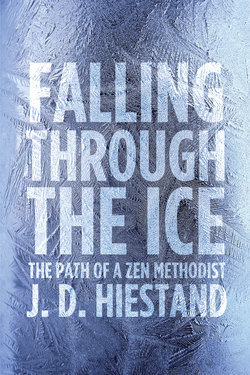Читать книгу Falling Through the Ice - John D. Hiestand - Страница 11
На сайте Литреса книга снята с продажи.
Chapter 4: Christianity
ОглавлениеAs we drove out of the valley into the thickening gloom of night, Alan asked, “Say, wasn’t this about the time that Christian pop music hit the scene? Since you were so into music, did you get into that at all?”
“There was some Christian rock around in the early ’70s, but it was for . . . well, Christians, so I was oblivious. And when Christian praise music started up in the early ’80s it seemed very fundamentalist and not terrifically good musically—and I wasn’t a Christian—so no, I wasn’t into that scene at all. In spite of all that, I nevertheless did get my first meaningful introduction to Christianity through a couple of pop culture phenomena.”
“I thought you said Christianity was pretty much a non-presence in your life when you were growing up.”
“Well, I did, but I guess that’s not entirely accurate. In the sixties and seventies, Christianity was still part of the basic fabric of American society. References to the Bible, Jesus and God were made consistently even in otherwise secular contexts. The fact that a band called the Doobie Brothers could have a hit in 1972, ten years before the beginnings of Christian praise music, called Jesus is Just Alright With Me speaks for itself. But all of these popular culture references to Christianity didn’t form a particularly solid basis for any kind of understanding of the faith. I never opened the Bible, never heard a sermon, and never had any substantive talks about Christianity until I was in my twenties.
“Ironically, there was a Methodist church just around the corner from our home in Los Altos. Its main attraction to me as a kid was that they had installed speed bumps in the lanes leading to their parking lot, and I spent many hours using them like ski jumps on my skateboard and bicycle. There also was a little creek that ran behind the church, and a few times my buddy Mark Galen and I would sneak down there and try to smoke cigarettes that I had liberated from my mom. I was never able to inhale without hacking, coughing and turning green, so this ultimately was a great lesson in teaching me how hideous smoking is; but hanging out with Mark was the main goal. Mark was the designated ‘bad boy’ of our neighborhood, and he was constantly in trouble at home and at school. For all I know he might be a bank president now, but back then his penchant for juvenile delinquency made him fun and attractive. He also gave me my first formal introduction to fundamentalist Christianity.
“Mark’s mother was quite devout, and she was concerned that I wasn’t ‘saved.’ One afternoon when I was about 11, Mark invited me to come to his church (Baptist, I think, but it certainly wasn’t the Methodist church) and meet with him and his mother. We gathered in a windowless room in the back of the church, where Mark’s mother instructed me to close my eyes and pray for Jesus to enter my heart. And I did. I so wanted Jesus to enter my heart, and I prayed fervently that Jesus would do so. The truth was, I didn’t have any feeling of belonging to my mom’s Zen group, or really any other group, but if Jesus would just enter my heart I might belong to that group. I wasn’t really sure what that group specifically was, but I really wanted to belong. I was overwhelmed by the emotional, cathartic feeling that this kind of experience can bring, and I cried and told Mrs. Galen that Jesus had indeed entered my heart. But . . . that was the end of it. After the emotionalism ebbed, I could detect no evidence at all that Jesus had entered my heart, and even at that young age I suspected it had all been a setup. I’m sure Mrs. Galen’s motives were good, but the net result was reinforcement of the idea that Christianity was phony. When I didn’t join their church or participate at all, Mark and I gradually grew apart, and he went out of my life before we were out of elementary school.
